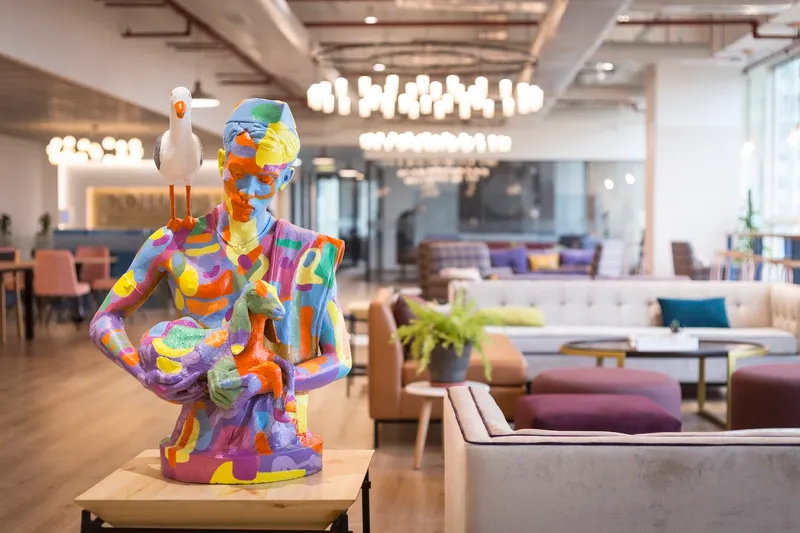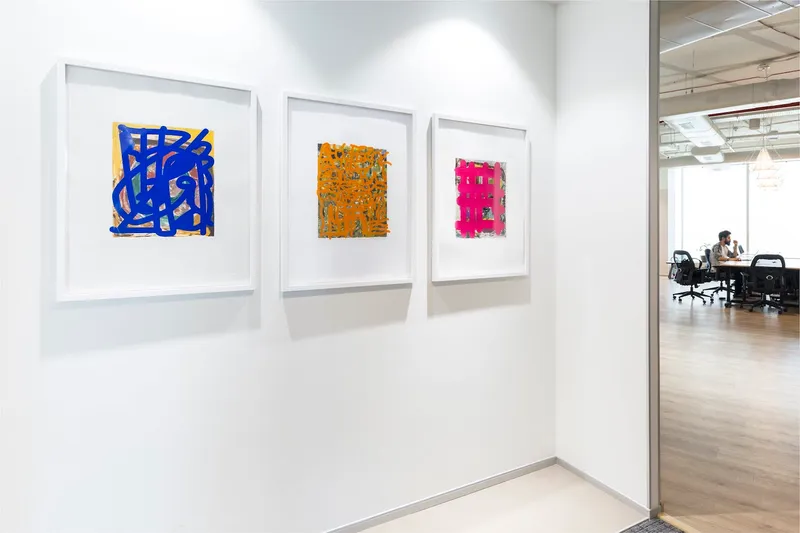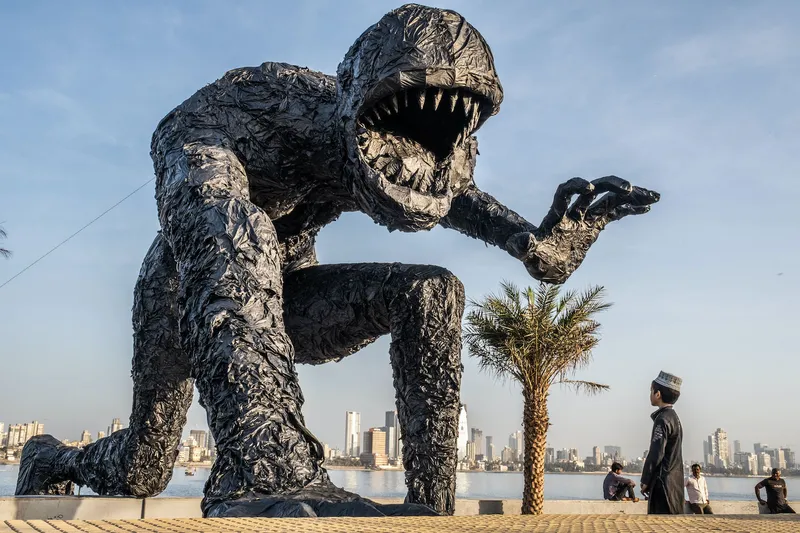This Mumbai-based art on subscription service lets you rent fine art
The Floating Canvas Company rents out works by emerging artists at affordable prices across cities like Delhi, Mumbai, and Bengaluru among others.
“Why don’t we see more art around us, in our homes, offices, in the places where we hang out? That’s a question that stuck with us,” says co-founder Shakti Swarup Sahu on the genesis of (FCC).
Founded in 2017 by colleagues-turned-friends-turned-entrepreneurs Aagam Mehta, Rahul Singh Yadav and Shakti Swarup Sahu, this Mumbai-based startup allows you to acquire art on a rental basis.
“When we looked for an answer to this question, we discovered two roadblocks. Firstly, quality art calls for a significant initial investment which scares away art enthusiasts because not everybody is a collector. The second hindrance we discovered is that people often wonder what if they get tired of the art piece they have acquired and feel like a change because tastes and aesthetics keep evolving with time,” explains Shakti. “This is how we ended up devising this subscription service for artworks.”
How it works
The art on subscription service is available on the FCC platform where both individuals and organisations can go to rent or purchase original works of art. The minimum period for which art can be rented is one year, and payments can be made monthly, quarterly or half-yearly.

Subscribers have the option of switching their artwork once every six months for a new piece from the collection, without shelling out any extra money. The barrier to entry is as low as Rs 90 a month. FCC users also have the option to convert your ongoing subscriptions into purchases.
Once a user chooses the artwork and the tenure for which they want it, the piece of art is shipped upon payment of the applicable refundable deposit.
Once an artwork comes back from a subscriber's premises, the Floating Canvas Company conducts a thorough quality check. In case there are damages beyond the usual wear and tear, it's adjusted in the deposit to be refunded or taken up with the subscriber on a case-to-case basis.
The company has divided its entire art collection into two categories - open edition and limited edition. Open edition includes digital artworks like illustrations and photographs. The artworks in this collection can be printed and reprinted and the same work of art can be subscribed to by many people at the same time.
However, limited edition art pieces do not have copies and can only be subscribed to by one person at a time. Once subscribed, these artworks have a band at the top that alerts the users that this piece is not available.
The company’s average subscription amount is Rs 500, of which 60 percent goes to the artist.
Picking the art and the artists
Currently, FCC has 450 art pieces on the website. The startup, however, has a larger inventory which is reserved for corporate clients and partners like interior designers and architects. This inventory provides these clients access to limited edition art pieces and has about 2,500 artworks.

The entire collection of art pieces, including prints of the open edition and limited edition artworks, range between Rs 1,200 - Rs 3 lakh.
“The price range where we function is the art enthusiast range and not really the investor range. We do not deal in works that collectors are looking for, as we are catering to people who are casual lovers of art, who are just getting into what art is,” explains Shakti.
The platform has artworks from Padma Shri awardee Durgabai Vyam, who is a female artist working in the Pardhan-Gond tradition of tribal art, and also sells artworks by illustrator Anand Radhakrishnan, who is the first Indian to have won a Will Eisner award, known as the Oscars of comic books.
Aagam, Rahul, and Shakti worked together at Interface Business Solutions in advertising. This enabled them to work with artists and designers and participate in the art ecosystem, which eventually helped them collaborate with artists at FCC.
“We have a strong connect with the artist community because we have been working very closely with designers during our advertising phase. When we started the platform, we got illustrators, artists, and designers onboard quickly because they were already in touch with us,” says Rahul. “But as we moved on, a lot of artists started approaching us to have their artworks listed on the platform. We also have a curation panel where we pick the right artworks for our collection.”
The journey until now
There are websites like Rise Art, Art Loft and Hang Art that offer similar services abroad. Even in India, there are galleries like Bengaluru-based Art Intaglio, Indore-based International Fine Art Academy and Delhi-based AnYahh which offer rental services in their respective cities. However, FCC has the advantage of scale, as its products are shipped to Delhi NCR, Mumbai, Pune, Bengaluru, Kolkata, Hyderabad, Chennai, and Ahmedabad.
Over the years, the company’s offerings have diversified to include public art services like art installations, murals, and sculptures.

“When we reached out to potential clients in the initial days, they would request us for other art related services if they liked our artworks and our curation. They would ask us to get a sculpture, mural or installation done for them. Over time, we have evolved into an end-to-end art service provider,” says Shakti.
The company is currently clocking Rs 4 lakh through subscriptions every month. Additionally, the company makes Rs 2-2.5 lakh through selling art every month. The startup collaborated with Samsung for a project last quarter and reportedly clocked Rs 8 lakh in revenue from the project alone, says Aagam. Elaborating on the project, he adds that FCC signed as the art partner for The Frame TV by Samsung - a new offering by the brand that's a TV when switched on and a personal art gallery when switched off.
“Taking that forward, we have started a programme with some of Mumbai's most popular restaurants called the 'Art Menu' wherein the patrons of these venues don't just get to experience our artworks up close but also get to subscribe or buy them with exclusive discounts,” says Shakti.
The company is also looking at promotional partnerships with other brands (e.g. MUBI) that cater to a TG similar to FCC in order to introduce their service to newer audiences.
On funding and future plants, the founders say they have been bootstrapped so far but have begun the fund raising process and plan to close funding in the next few months.
“We feel that, as a business, we are now at a place where our offerings have matured and we as founders also have a clear vision of how to take things to the next level in terms of scale, reach and impact. That's why the time is right for us to join hands with investors whose vision aligns with ours. It's a process that we have begun already and plan to close in the coming months,” concludes Aagam.
Edited by Anju Narayanan









